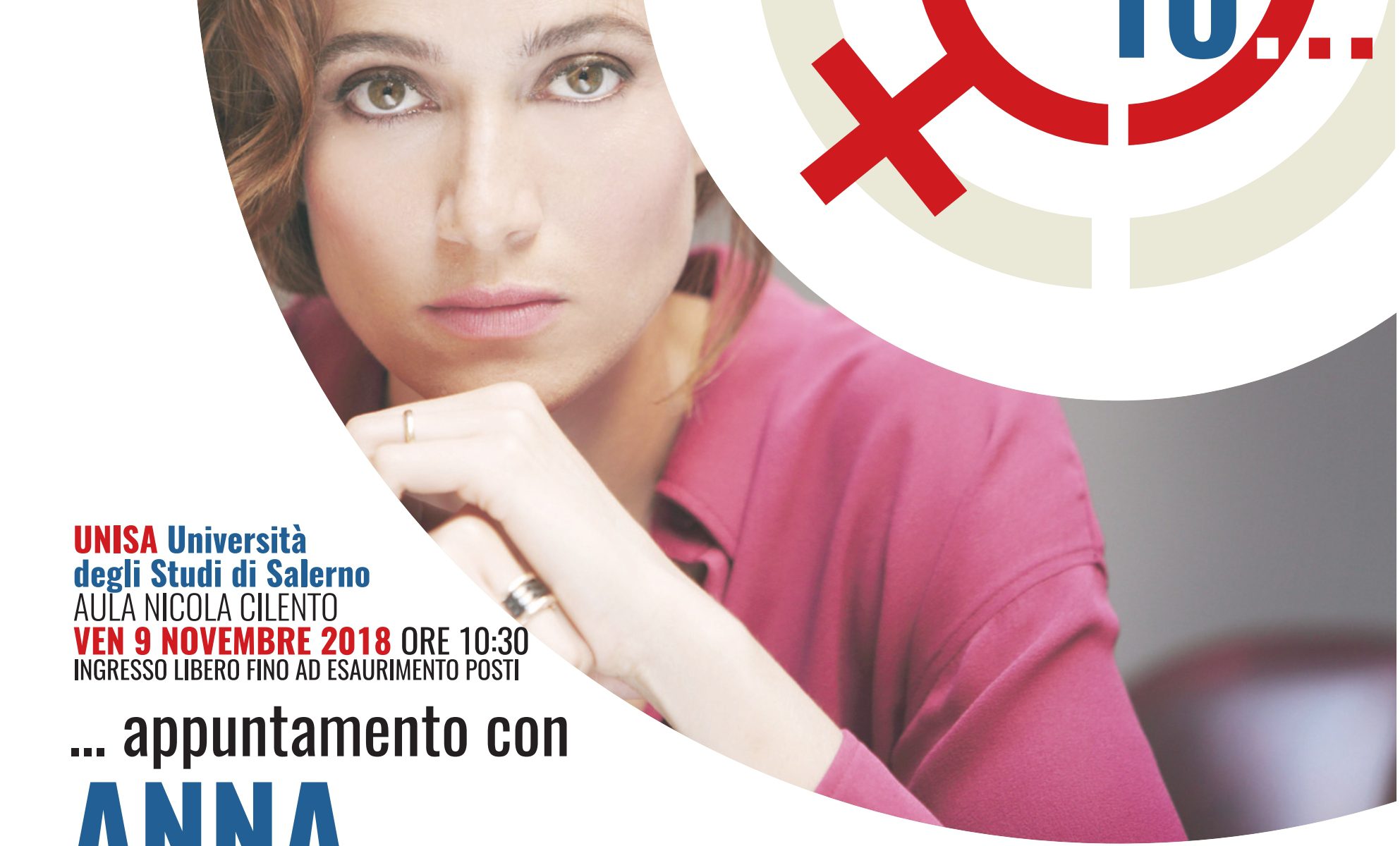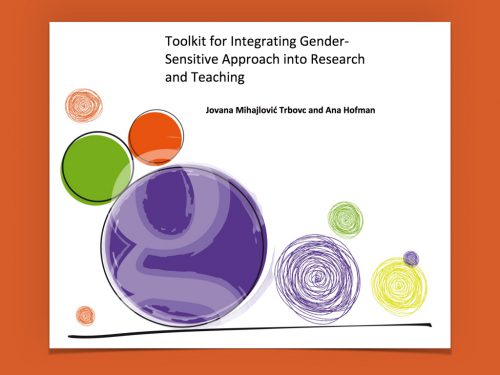It seems that still some proactive steps must be taken to make it happen.
Professor Loredana Incarnato presenting GEP as the heart of structural change
Professor Loredana Incarnato, Full Professor of Material Science and Technology at the University of Salerno, took part to the final event of the SAGE Project (Systemic Action for Gender Equality), held in Brussels on 10th July 2019. The Conference included the presentation of the final results and experiences of the SAGE Project, and a panel discussion involving representatives of the next generation of EU gender equality projects. Professor Loredana Incarnato, leader of the WP 4 “GEPs set-up, running and improvement” of the R&I PEERS Project presented the project as well as the results reached so far.

Professor Incarnato gave particular attention to the seven Gender Equality Plans approved in the framework of R&I PEERS, and the importance of the monitoring indicators as part of the process of change.
Women and academia: what are the prospects?
 The first Doctoral seminar dedicated to the presentation of the European project “R&I PEERS – Piloting Experiences for Improving Gender Equality in Research Organisations” will take place at the University of Salerno, on Friday 28 June 2019 at 10,30 am. The event, focused on gender issue in research, is organised by OGEPO-UniSa (Interdepartmental Observatory for the Gender studies and Equal Opportunities). It represents one of the activities envisaged within the Gender Equality Plan of the UniSa, approved in the framework of the R&I PEERS. At the heart of the debate there will be some key current issues concerning “Women and Science” such as university career paths, the European research area and equal opportunities policies. The seminar will include speeches of Maria Rosaria Pelizzari, Director of the OGEPO and Coordinator of the R&I PEERS project; Loredana Incarnato, Responsible for the STEM area of the R&I PEERS project; Federica Di Sarcina, R&I PEERS research fellow and expert on European gender equality policy and Annalisa Apicella, Vice-Coordinator of ADI Salerno.The event is supported by ADI Salerno, the Italian Association of PhD candidates and PhDs.
The first Doctoral seminar dedicated to the presentation of the European project “R&I PEERS – Piloting Experiences for Improving Gender Equality in Research Organisations” will take place at the University of Salerno, on Friday 28 June 2019 at 10,30 am. The event, focused on gender issue in research, is organised by OGEPO-UniSa (Interdepartmental Observatory for the Gender studies and Equal Opportunities). It represents one of the activities envisaged within the Gender Equality Plan of the UniSa, approved in the framework of the R&I PEERS. At the heart of the debate there will be some key current issues concerning “Women and Science” such as university career paths, the European research area and equal opportunities policies. The seminar will include speeches of Maria Rosaria Pelizzari, Director of the OGEPO and Coordinator of the R&I PEERS project; Loredana Incarnato, Responsible for the STEM area of the R&I PEERS project; Federica Di Sarcina, R&I PEERS research fellow and expert on European gender equality policy and Annalisa Apicella, Vice-Coordinator of ADI Salerno.The event is supported by ADI Salerno, the Italian Association of PhD candidates and PhDs.
ZRC Hosts Round Table on Promoting Science from a Gender Perspective
On May, 20 ZRC SAZU organized a discussion »ZRC: we are women too« on the promotion of science from a gender perspective. This is the first from the series of activities titled ŽRC SAZU, which will actively promote academic excellence of female researchers. Four distinguished researchers were invited, employed by ZRC SAZU, to speak about their work. Archeologist Lucija Grahek discovered a rare gold coin from the Iron Age, ethnomusicologist Ana Hofman received the Austrian award for science Danubius, historian Petra Svoljšak is known for extensive promotion of the First World War in the Slovenian public, while philosopher Alenka Zupančič recently published “What is Sex?”, her third book at MIT Press, one of the leading international academic publishers.

Scholars discussed the role of gender in academic work from different perspectives. They underlined the complexity of this issue, which cannot be divorced from other social factors and power relations. Together with gender there is a need to consider statuses and hierarchies between academic fields, as some fields are more established then others. There is also a difference between researchers that work in their mother tongue and those who adopted new languages and left their home countries. Additional issue that defines career and life choices of successful researchers is also class and family background. But, one of the biggest challenges of the academic work seems to be, according to researchers, the administrative burden, bureaucracy, and project-oriented nature of their work that lead to unstable, short term employment and precarity.
Invited speakers opened the question of the promotion of the academic results through the perspective of generational differences. They noted that older colleagues are less focused on the promotion, as they do not share the mind-set that everything that is »produced«, including academic results, needs to be sold on the market. This is why, they thought, younger generations and those on the lower stages of their academic careers are more involved in promotional activities. However, results of the quantitative analysis of ZRC SAZU’s social media posts showed different picture: 70% of scientists, who are promoted, are male and in the higher stage of their academic career. This is one of the reasons why a specific set of activities for promotion of female researchers were organised, and included it in the Action plan for promoting gender equality.
Gender Equality Plan Case Study: University of Salerno
The Gender Equality Plan (GEP) of the University of Salerno–elaborated in the framework of R&I PEERS project, and approved by the Academic Senate and Board of Directors–is a comprehensive document offering a clear and focused strategy on gender equality for a university made up of more than 40.000 people. It is organised around six target areas whose achievement will be monitored through selected indicators:
- Gender Perspective in Research and Curricula;
- Improving use of gender-sensitive language;
- Work-life balance;
- Raising awareness of gender equality in UNISA;
- Mentoring;
- Reducing gender gap in decision-making bodies.
The GEP intends to carry on the legacy of OGEPO (Interdepartmental Observatory for the Gender studies and Equal Opportunities) and the CUG (Unique guarantee committee for well-being in the workplace) that since 2011 are committed to the achievement of equality between women and men and well-being for all. Indeed, some of the GEP’s activities aim at reinforcing the already existing actions such as:
- Courses on gender studies/gender equality;
- Training on gender equality and diversity management for University administrative staff;
- Initiatives on gender-based violence phenomenon;
- Gender budgeting;
- Nursery and summer camp for students and workers’ children.

The GEP’s activities aim at going one step further in order to define a broader strategy including a special attention to the STEM field. Among the envisaged actions, we can mentioned
- Introduction of an interdisciplinary teaching on gender equality and diversity management in all PhD courses;
- Mentoring sessions for female PhD students, research fellows and researchers;
- Supporting activities for financing fellowships on gender equality.
In addition, a reach programme of international conferences and workshops has been included in the GEP in order to develop a lively debate among experts around some key issues concerning women and men in research (i.e. women in STEM; gender bias in decision-making bodies; feminine leadership; gender-sensitive language), and establish scientific partnerships between the University of Salerno and European research organisations on the matter.

Integrating the Gender Dimension in Research
At the second progress meeting for the R&I PEERS project, held in Athens on 4 April 2019, consortium members organised a workshop on “how to integrate the gender dimension into research content.” The aim of this training was to provide consortium partners with knowledge on how to integrate the gender perspective in research in a way that does not deal with the topic of “gender” as a specific research objective.
The workshop was built around the Toolkit for Integrating Gender-Sensitive Approach into Research and Teaching developed as part of the GARCIA project, and was convened by Dr. Jovana Mihajlović Trbovc, one of the Toolkit authors hailing from R&I PEERS project partner ZRC SAZU.
The aim of the Toolkit itself is to help researchers and teaching staff understand the relevance of gender to scientific inquiry by addressing questions to their past and future research/teaching trajectories. Using the Toolkit, then, the focus of the workshop was to:
- Raise awareness about the value of integrating the gender dimension in research;
- Examine how the gender perspective could lead open new opportunities research inquiry; and
- Promote more socially responsible and sensitive scientific inquiry.
Starting from the premise that there are no ready-made solutions, the workshop participants were asked to describe a project that does not have gender component so the group could practice gender-sensitive approach from scratch. In this way, the workshop was structured as a thought exercise in which the convenor facilitated discussions on how a gender-sensitive approach could be applied on concrete project questions, methodologies, and results.
Workshop participants were evenly divided between those familiar with gender studies concepts and those from disciplines where exposure to such concepts is rare. This encouraged lively debate where, through exchange of knowledge between the groups, a notable achievement was an increase in understanding around the concepts of ‘gender’ and ‘intersectionality’.
Wrap-up: R-I PEERS First Multisectoral Conference
The First Multisectoral Conference of the R&I PEERS project took place in Athens on 3 April 2019, and was attended by approximately sixty participants, including Ms Maria Theleriti, Member of Greek Parliament, who also represented Mr Nikos Voutsis, President of the Greek Parliament. The Conference was opened by Ms Marina Chrysoveloni, Greek Deputy Minister of the Interior in charge of Gender Equality and representative of Mr Alexis Charitsis, Greek Minister of the Interior, followed by introductory remarks from Ms Maria Rosaria Pelizzari of UNISA, R&I PEERS Project Coordinator.

Two project partner organizations, the General Secretariat for Gender Equality (Greece), and Agence Nationale de la Promotion de la Recherche scientifique (Tunisia), then presented their Gender Equality Plans, followed by a speech from CIC nanoGune (Spain) on the subject of “gender equality in research and innovation in Spain,” and the situation at CIC nanoGune specifically.
A representative of Consiglio Nazionale delle Richerche (Italy) then discussed the importance of using correct indicators for Gender Equality Plans and the methodology employed for identifying these indicators. Ms Marta Artilles Viera, EC representative, then made a remote presentation outlining ERA guidelines and Project Objectives for the R&I PEERS project.
The conference also showcased two ongoing “sister” Gender Equality projects in Research and Innovation, also funded by Horizon 2020, that promote Gender Equality Plan implementation. Greek representatives of these projects, the Hellenic Foundation for European and Foreign Policy (ELIAMEP) and the National Documentation Center (Greece), presented the project objectives and results achieved so far within the two discussed projects, noted below:
- TARGET Project: SUPPORTING Gender Equality Innovating Institutions in the Mediterranean; and
- The GenderAction Project: Gender equality in the ERA Community
Ensuing debate highlighted the need for networking among partners at national level and incentives to strengthen the diffusion of gender in research, including toward operation of research organizations.
Representatives of Galilee Research Institute (Israel) and Digital Leadership Institute (Belgium) subsequently spoke about the importance of an online platform for maximizing the impact of the project. And finally, a representative of the Neuroscience and Technology Institute (Cyprus) presented the Structured Democratic Dialogue methodology and explained its importance for participatory decision-making.
International Day of Women and Girls in Science with ZRC SAZU
The International Day of Women and Girls in Science will be marked by the traditional roundtable on 7 March, taking place at the premises of the Ministry of Education, Science and Sport . The roundtable will be divided in two parts: first, the participants will try to elaborate the strategies and measures to ensure the translation of one-time measures for increasing equal opportunities in the academic sphere into longer-term changes. Second, Gender Equality Plans developed by various research institutions will be presented, with specific focus on ZRC SAZU’s Gender Equality Plan. It will be presented by Dr. Oto Luthar, the Director of ZRC SAZU, and Dr. Tanja Petrović, the coordinator of the R&I PEERS project at ZRC SAZU
An important meeting
In the framework of the R&I PEERS project, a workshop for early career researchers was organized on 22 February hosting Dr. Dean Vuletic from Vienna University. Dr. Vuletic discussed the various strategies for successful applications for international scholarships as well as the opportunities for young scholars’ career advancement.

A newsletter for everyone out there
ZRC SAZU published the first issue of Gender and Science newsletter. The newsletter will be published regularly to inform the general public about various activities in the field of gender research and equal opportunities in the academic sphere and at the ZRC SAZU. The ZRC SAZU Institute of Culture and Memory Studies is currently involved in two international projects on the subject: R&I PEERS(Pilot Experiences for Improving Gender Equality in Research Organizations) and ACT(Communities of Practice for Accelerating Gender Equality and Institutional Change in Research and Innovation across Europe – Community Practices for Promoting Gender Equality and Institutional Changes in the European Scientific and Research Sphere). The two projects aim at enabling women to engage in the world of science and draw attention to inequalities.
To access click here.
The first issue of Gender and Sciencewas published on 11 February. The date itself also has a symbolic value: 11 February is the International Day of Women and Girls in Science and is celebrated around the world. The decision was adopted by the UN in 2015 to draw attention to the low percentage of female scientists – less than 30 percent worldwide.





